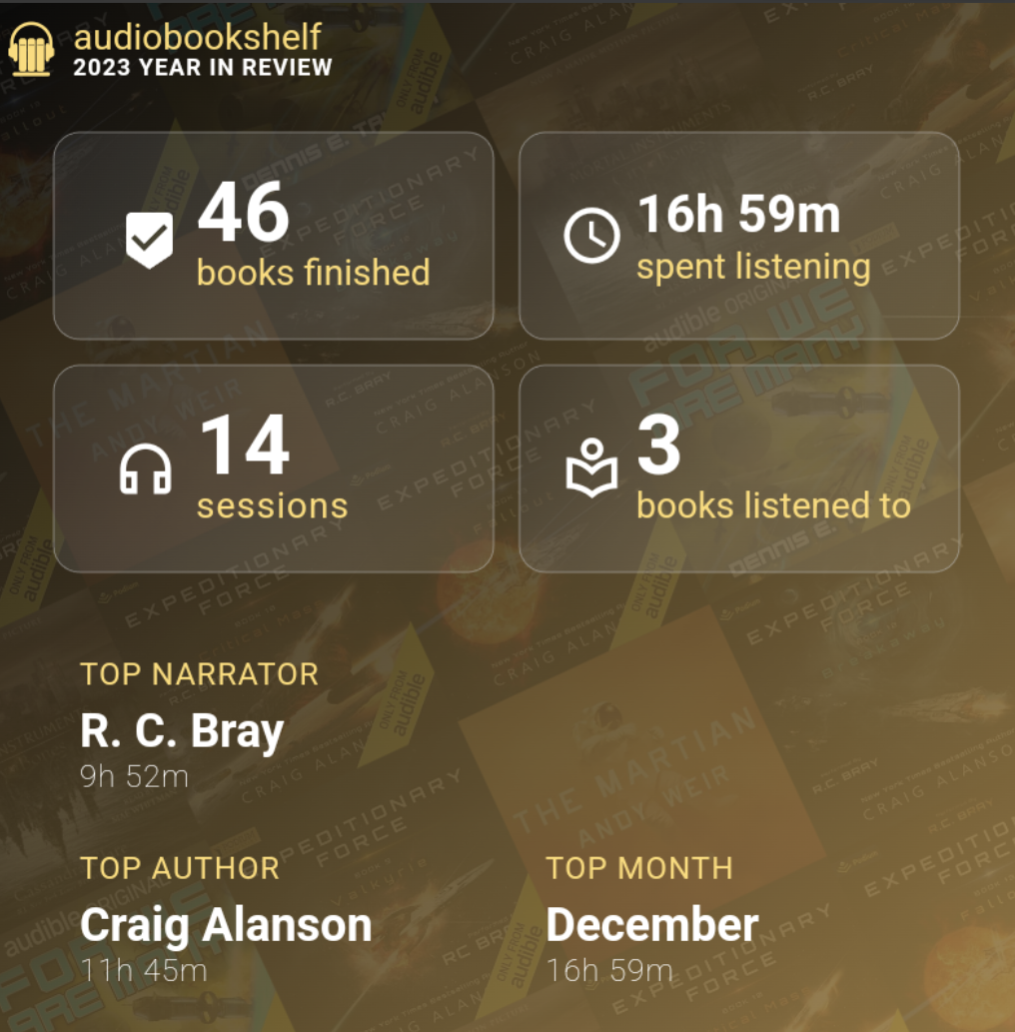

I post content. You view content. I moderate content. You no like, you no pay
- 5 Posts
- 58 Comments

 English
English- •
- www.motortrend.com
- •
- 2M
- •
seedit4.me & rapidseedbox.com are both “reputable” enough in the space that you can’t go wrong.


https://unbound.docs.nlnetlabs.nl/en/latest/use-cases/home-resolver.html
https://www.perfacilis.com/blog/systeembeheer/linux/setup-a-public-dns-server.html
Or even better yet, why not join OpenNIC and help a more democratic alternative to DNS root.

 English
English- •
- torrentfreak.com
- •
- 5M
- •


Many people have said they have switched already and have said it works without issues (as far as they know). I’m sure there is a huge amount of sites and configs that didn’t make it into the lite version, I guess we’ll find out when a huge userbase refuses to migrate from chrome and installs the uBo-lite


Yes. In those cases the steam DRM is usually for achievements, friend joining, and checking that it was run via steam.
There are plenty of “steam emulators” or even patchers that remove the steam DRM.
So as long as you have the files applications such as SteamEMU and Steamless are godsends in ensuring that when you “buy” a game you will still be able to play it.


If you want to do an open codec, use AV1 codec and Opus for audio.
https://github.com/master-of-zen/Av1an and use aomenc for the av1 codec.
Ffmpeg doesn’t have good av1 support.


Sub folder for the web/API. I should have been more descriptive. IE: I had to have it on http://abshelf.example.com instead of http://example.com/abshelf/
ABS has a known directory structure for “figuring out” titles, authors, etc https://www.audiobookshelf.org/docs/#book-directory-structure . The problem I had is with the “Series” as I have them all saved in 1 folder. Books>Author-Title(Series, #)/files. Because of my terrible convention and I am probably the only one who does it, it only sometimes matched.
But after remapping everything (I immediately setup backups so I never have to do it again).
For the stats, I only recently installed it, in November. So I marked a few books as finished, but didn’t “listen” to them. Thus the stats are all skewed


I prefer audiobookshelf. As it has download for offline play. The only downsides I’ve found is that you can’t have it on a sub-folder, and the metadata on my audiobooks are completely trash. So they sometimes don’t map correctly. But that’s my own problem. Once I fixed it/enriched it it’s been great so far.
And if your into stats it also has weekly graphs and a yearly review thingy:



You could use something like archivebox as that saves the whole page, or you could use Waybackmachine and force it to save the page via an add-on.
You could also setup your own yacy index and everytime you find an interesting site you could add it to yacy.
But this is kind of not what you are asking for. Archivebox is probably the closest, or using squidcache and literally caching every url you go to. 😅
I still have my DS1812 which I bought for ~1200 when it came out in 2012/2013 as well.
It only runs NFS/SMB atorage services. Still is an amazing unit. It has been through 7 house moves 2 complete failures, and about 4 raid rebuilds.
Considering it’s 2024 now and it’s been running for nearly 12 years, it’s the reason I recommend paying out the arse for Synology hardware even if it is overpriced. I still get security patches, and I got a recent (2 years ago?) OS upgrade.
It can still run the occasional docker containers for when I need to get the latest ISOs or for running rclone to backup.
If I bought a new unit I would be happy for another 10+ years with it no doubt. As long as I purchased as much ram as possible to put in it because 3GB ram in this unit is what really kills the functionality, besides from the now-slow cpu
Well… you asked for one: helix-editor.com
So far it’s nice, but I still prefer my vim+mods
This hits all the requirements. Streaming, saving locally, and Foss.
https://audiobookshelf.org such a great app. And it does podcasts.
A cursory search found that you can use extensions for cloudstream.
https://cloudstream.on.fleek.co/repos/
Searching for Audiobooks on that page lists a repo that has audiobook support.
I have never used it but it seems it might already exists…
Yep. Keep the WAN port dhcp Client enabled if you can, just one less thing to worry about.
Also take note that when you change the static IP of the new router it would conflict with the old one (and dhcp might fail). So you might need to set your local clients IP. Take note of the configuration it has and the steps to set it manually.
The rest all sounds right.
Your router’s IP can be anything. Choose any internal IP address on your subnet.
You can have 2 routers on the same subnet just make sure you disable DHCP on the new one while you perform the setup of everything else.
Then when you want to switch over, toggle on dhcp on the new router and replace the cables and you should be fine. You’ll know it’s working when you plug into it and get a default route of the new router.


DMCA only come from trackers that are open to the world. ISPs don’t snitch on you. They only do what is required of them by law, usually. (Forwarding DMCA complaints).
The copyright companies, connect to these trackers and perform regular torrent client requests, such as “hey, who is seeding this torrent”. And the tracker responds. They take note of the IPs and do whatever they do.
Deep Packet Inspection (DPI) can only find out that you are doing a P2P connection and possibly torrenting. Which in of itself is not illegal.
With private torrents you are blocked from the DMCA copyright companies because they cannot find out what torrents are on the trackers because you need the metadata of a torrent & the password to get the peer list.
A VPN only solves the problem where the ISP is hostile to you, the consumer and obfuscates who you are connecting too. With DPI and packet analysis (which is slightly expensive) they could figure out you are torrenting via a VPN with a high degree of certainty. Butt at the end of the day, all they would see is encrypted packets. This data is no different than telling your torrent client to Force Encryption, which everyone should do and I get annoyed all the time when people don’t have it on.
Tldr,
- VPN only blocks ISP from seeing unencrypted P2P traffic and makes it harder to identify.
- DMCA companies can only access public trackers peer lists where it gets its information from
For screenripping, the concepts are:
- you have to have a client that can play the content
- output via a HDMI splitter
- record the screen from the second computer
- you now have a 4k recording
That constitutes a webrip.
A webdl means you need to crack widevine or whatever protections Netflix has in place.
How you crack that means you most likely need a L1 key which is the highest protection and no one is going to tell you how to get one or crack it. If they do they risk making their way & key public and then it will be patched and “everyone” will be worse off.
If you are interested have a look at the l3 protections : https://github.com/cryptonek/widevine-l3-decryptor


I have a Pi4B but with a m2 drive as the OS instead of the sdcard which I highly recommend due to the amount of read/write downloading files does.
A pi4 should have 0 trouble (via ethernet) doing anything you are saying.
From what I could tell your setup is internet -> pi4 -> appletv. If the pi & applet are on Wifi that would be a huge issue. The most any wifi can realistically do is 270mbps and that is when you are next to the damn thing.
As let’s say you are streaming 1080p content which requires around 20-50mbps. Router to pi (20mbps) + pi to router (20mbps) + router to Apple TV 20mbps), so you’d already be pushing 60mbps at best internally all over wifi.
Temporarily add cables to everything if possible or move the pi onto a cable as a minimum. then you will cut down on the back-and-forth it needs to do over wifi so then your router can dedicate all its bandwidth to sending the data to the appletv.
If it’s all on cables already then I guess it’s a filesystem issue, as your not using a SSD but using a SD card.
Run iostat via command line while streaming and see if there is any big “iowait” values. I’d there is then your sd card is not keeping up with the total bandwidth





Why not run your own scraper?
https://bitmagnet.io/ (probably the simplest)
https://github.com/seik/stilio
https://github.com/AlphaReign/scraper
https://github.com/alanshaw/libp2p-dht-scrape-aas
https://github.com/boramalper/magnetico & a cli search utility for it: https://sr.ht/~rakoo/magneticos/